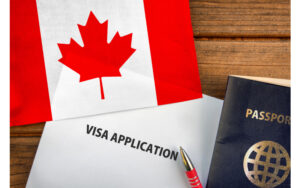Canada attracts international students from across the globe, offering a diverse and high-quality education in some of the top colleges and universities. Studying in this beautiful country is not only affordable but can also open doors to immigration opportunities, provided that you meet the necessary requirements.
In this article, we will guide you through the costs associated with studying in Canada, the benefits of choosing Canada as your study destination, the application process, funding options, and other essential information needed to successfully embark on this life-changing journey.
Key Takeaways
- Canada offers affordable, top-tier education at renowned colleges and universities.
- Studying in Canada can lead to immigration opportunities for students meeting required conditions.
- From selecting the right school to the visa application process, our article guides you through every step of studying in Canada.
Why Study in Canada?
Studying in Canada offers a wide range of benefits for international students. Some key advantages include:
- High-quality education with globally ranked universities and colleges.
- Affordable tuition fees compared to countries like the United States or the United Kingdom.
- Opportunities to work and study, allowing students to gain valuable Canadian work experience.
- A welcoming and diverse culture that makes students feel comfortable and safe.
- Post-graduation immigration options through the Express Entry program for eligible students.
Growth of International Student Population in Canada
Canada is an increasingly popular destination for international students, with students coming from over 190 countries. In the 2019/2020 academic year, there were approximately 650,000 international students studying in Canada across all provinces and territories. This demonstrates the strong reputation of the Canadian education system globally.
The top five countries sending international students to Canada are India, China, Vietnam, France, South Korea, and Iran. India leads the list, with 180,275 students studying in Canada in 2020. The growth in the international student population in Canada reflects the country’s commitment to providing a welcoming and inclusive environment for education.
Cost of Studying in Canada

Aside from tuition fees, students also need to take into account living expenses, learning materials, health insurance, and transportation costs when budgeting for their studies in Canada.
In 2018, international students contributed more than $21 billion to the Canadian economy, and this figure is expected to have more than doubled in recent years. Tuition fees for undergraduate programs typically range from C$12,000 to C$30,000 per year, while graduate programs cost between C$10,000 and C$40,000 per year. It’s important to note that some provinces, like British Columbia, Ontario, and Quebec, charge higher tuition fees. Additionally, cities like Vancouver, Toronto, and Montreal tend to be more expensive for international students.
Affordable Canadian Universities
Several Canadian universities offer more budget-friendly tuition rates for students. Some of the most affordable options include:
- Brandon University – Annual tuition fees range from C$4,000 to C$8,000
- Concordia University College of Alberta – Annual tuition fees vary from C$2,000 to C$6,000
- Memorial University of Newfoundland – Annual tuition fees range from C$4,000 to C$8,000
- University of Manitoba – Annual tuition fees range from C$5,000 to C$10,000
- Athabasca University – Annual tuition fees range from C$3,000 to C$7,000, with a self-paced learning option available for students
- University of Northern British Columbia – Annual tuition fees range from C$4,000 to C$6,000
- Thompson Rivers University – Annual tuition fees range from C$4,000 to C$7,000
- Laurentian University – Annual tuition fees range from C$5,000 to C$7,000
- Cape Breton University – Annual tuition fees range from C$6,000 to C$8,000
While these universities provide more affordable options, it’s important to consider other factors such as living expenses and program quality when choosing where to study in Canada.
Cheapest Colleges in Canada
Funding Your Education in Canada
As an international student, there are various ways you can fund your education in Canada. We have gathered five popular funding options to consider:
Scholarships for International Students:
Various organizations, including governments, schools, and individuals, offer scholarships for international students.
Student Loans:
Both Canadian and international students may be eligible for financing options like MPower.
Work-Study Programs:
You can earn income by working part-time during the school year. You can also work full-time during summer and school breaks if you have a valid work permit.
Private Sponsorships:
Employers or organizations may sponsor your education, covering your tuition fees and living expenses while studying in Canada.
Family Members in Canada:
Some students may receive financial support from family members residing in Canada.
Colleges with Low Tuition Fees
- Bow Valley College—Tuition fees: C$5,000–C$7,000 per year
- Red River College—Tuition fees: C$6,000–C$8,000 per year
- Vancouver Community College—Tuition fees: C$4,000–C$6,000 per year
- Niagara College—Tuition fees: C$6,000–C$8,000 per year
- Sheridan College—Tuition fees: C$7,500–C$11,000 per year
- George Brown College—Tuition fees: C$8,000–C$15,000 per year
- Selkirk College—Tuition fees: C$4,000–C$7,000 per year
When studying in Canada, remember to explore your Canadian student accommodation options as well.
Requirements to Study in Canada
To successfully enroll in a Canadian education institution, international students must fulfill certain requirements, such as:
- Meeting the designated learning institution’s (DLI) admission requirements, which include minimum grades and English language proficiency scores (IELTS, TOEFL, or CELPIP)
- Providing proof of sufficient funds to cover tuition and living expenses while studying in Canada
- Holding a valid passport, visa (if necessary), medical examination results, and a police character certificate (PCC)
- Obtaining a letter of acceptance from a Canadian DLI
It is crucial for international students to carefully research and understand the admission criteria, English language proficiency tests, and Canadian Study Permit eligibility to ensure a smooth application process.
5 Steps to Study in Canada from Anywhere in the World

Step 1: Choose an Ideal School
First, take the time to find a Designated Learning Institution, based on your academic interests, career goals, budget, and country of origin. Each study program has different tuition fees. The Canadian Government provides an online directory for universities and colleges with programs in English and French. If you need additional assistance, you can engage an educational agent to help select a suitable institution.
Step 2: Verify Admission Requirements
Next, make sure you’re aware of all the admission requirements for your chosen school and meet them accordingly. These requirements may vary for each institution.
Step 3: Collect Necessary Documents
Prepare all the required documentation for your application, such as:
- Valid passport copy
- Proof of funds (ex: bank statements, scholarship letters)
- Language proficiency test results (IELTS, CELPIP, TOEFL)
- Letter of acceptance from your Canadian institution
- CV/resume
Step 4: Submit Your Application
With your documents in order, it’s time to complete and submit your application for admission to the university or college. Review your application carefully to avoid errors. Ultimately, the processing time for your admission decision may vary, spanning from a few weeks to several months. On some occasions, you may be required to attend an interview, which could potentially be conducted virtually.
Step 5: Obtain a Student Permit and Study Visa
Once accepted into a Canadian institution, apply for a Study Permit and a Study Visa. The Study Permit allows you to stay in Canada and study full-time at an accredited post-secondary educational institution. The Study Visa is a document issued by Canadian visa authorities and stamped in your passport to permit your stay.
How to Apply for a Visa to Study in Canada
Obtaining a visa to study in Canada involves a certain level of preparation and documentation. Among the essential documents are your passport, proof of acceptance from a Canadian school, financial documents, and a letter of explanation stating your intentions to study in Canada. We recommend requesting an electronic copy of your acceptance letter while applying for admission to ease the visa application process.
Here’s an overview of the steps to obtain a Canadian student permit:
- Gather required documents: This includes documents like your passport, proof of acceptance, financial information, and a letter of explanation.
- Pay the application fee: The fee for a student visa or extension is C$150.
- Submit your application: To the Canadian Embassy or Consulate.
- Wait for a decision: This generally takes four to six weeks, but can vary in busy periods.
Ensure you have made travel arrangements only once your student visa is approved. Keep in mind that the Immigration, Refugees and Citizenship Canada (IRCC) can refuse your application or request additional information if necessary.
Your Canada Student Visa typically covers the duration of your studies. Exceptions include short-term language courses, exchange programs, and research projects. If you need to extend your visa duration, provide a letter from your school and proof of finances to show your continued enrollment and financial stability.
By following these steps, you can achieve the necessary preparation and documentation for a successful Canadian visa application process, allowing you to pursue your academic journey in Canada.
Frequently Asked Questions
Are students from all countries eligible to study in Canada?
Yes, we can confidently say that individuals from any country and background can pursue education in Canada, irrespective of their current educational level.
What is the processing time for a Canadian student visa?
Obtaining a student visa for Canada typically takes up to eight weeks for processing worldwide.
What is the required bank balance for a Canadian student visa?
To qualify for a Canadian study permit, applicants must have valid proof of funds amounting to at least C$20,635.
For more information on studying and working in Canada, we recommend looking into topics such as Canadian Immigration, Police Clearance, Medical Exams, Work Opportunities, Post-Graduation Work Permit (PGWP), Immigration Consultants, Health Insurance, Immigration, Refugees and Citizenship Canada (IRCC), Citizenship and Immigration Canada (CIC), Canadian Minimum Wage, and Canadian Work Opportunities.
Wrapping Up
Studying in Canada not only enhances our qualifications but also opens doors to become a Canadian permanent resident. It’s crucial that we submit the necessary documents and pay the application fees promptly to avoid any delays.
Additionally, consider exploring other routes to immigrate to Canada, broadening the possibilities for your future. We hope you find this information helpful on your journey toward studying and living in Canada.
Disclaimer:
This article is for informational purposes only and not financial advice. Please do your own research or consult a professional before making financial decisions. The writer and publisher bear no responsibility for any potential losses or damages. Any reliance you place on information from canadaeasily.com is strictly at your own risk. Please read our Terms of Service for more information.





Pingback: Master Your Canada Visa Application: Essential Tips for Success - CanadaEasily